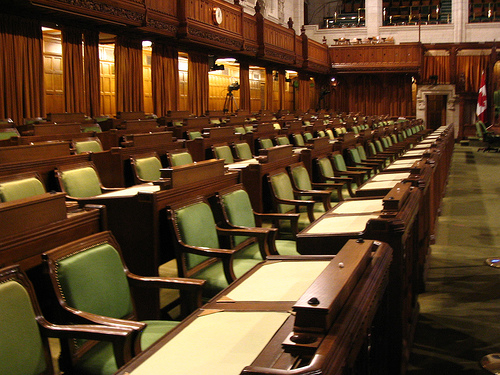In light of the attacks that shook Canada at the end of last year, Canadian Prime Minister Stephen Harper’s government has become more intensely committed to fighting terrorism at home and abroad. This coming Friday will be the day that Harper’s government will unveil new anti-terrorism legislation that will attempt to do just that.
The new bill is designed to make the verbose forces of terrorism diminish both online and on other mediums. What this means is that the new legislation will make it a crime to promote terrorism, or any sort of harmful activity, thus cutting out the arm by which foreign elements try to persuade Canadian youth to turn to violence.
In addition he said that the bill will give the police the necessary tools and powers to combat terrorism and prevent events such as the shooting of soldiers in front of war memorials — obviously alluding to the recent attack on the Canadian Parliament last year, but also to label those suspected of terrorist activities and prevent them from going on flights.
On the Oct. 22, 2014, Michael Zehad Bibeau entered Parliament Hill and murdered Col. Nathan Cirillo, who was standing guard at the National War Memorial. The attack occurred only two days after another Canadian serviceman, Patrice Vincent, was struck by a car and killed in Montreal.
Read more: Canadian parliamentarians were warned days earlier about threat
At first this seems reasonable as a means to counter such despicable activities as home-grown terrorism, but a great deal of people are concerned with what the increase of Canada’s policing powers will lead to, and how it will affect Canadians individually, as well as the nation as a whole.
“To be clear,” Harper added, “In doing so, we shall be safeguarding our constitutional rights of speech, of association, of religion and all the rest.”
This comes a few weeks after the egregious attack on Charlie Hebdo office that shocked the world, and sparked talks of increasing policing measure in the European Union, and most Western countries.
“These measures are designed to help authorities stop planned attacks, get threats off our streets, criminalize the promotion of terrorism, and prevent terrorists from travelling and recruiting others,” he said in Ottawa.
Harper’s office has always been a vanguard amid Canada’s political leadership in the fight against terrorism, and although the infringement of free speech is exceptionally worrying, the climate which has bred such policies seems almost understandable. Almost.
Although it an imperative to minimize the dangers that terrorism poses, it is also exceptionally important to maintain a balance between the infringement of violent speech, and that of what may be considered as coercive speech.
When issues such as the containment of “free speech” come into play it is difficult not to feel weary, regardless of the good it maintains to set out an accomplish.
Analysis by Milad Doroudian
Image By: Style416
